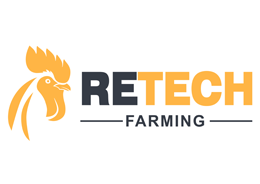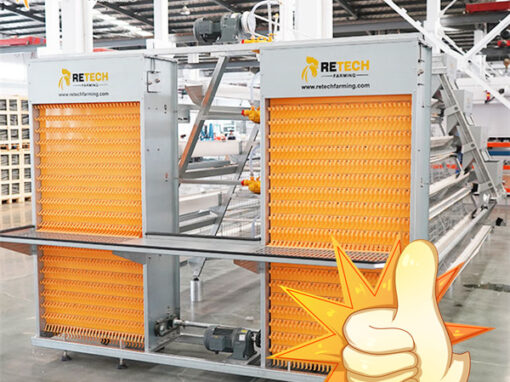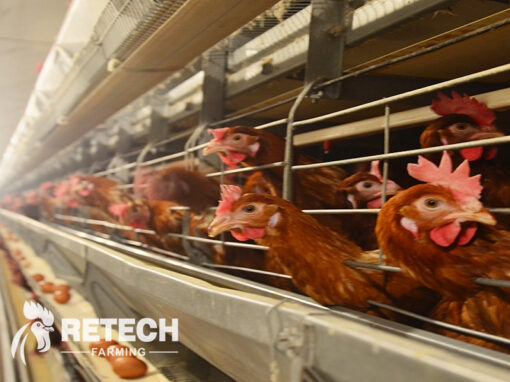If you don’t understand the physiological characteristics and habits of chickens, it is difficult to raising chickens well. Here are 7 characteristics of chickens.
1.Chicks are afraid of cold, adult chickens are afraid of heat
Newborn chicks have poor body temperature regulation ability. The body temperature of newborn chicks is slightly lower, about 39.6°C, and the lowest temperature can reach 33°C. After 10 days, the body temperature regulation system tends to be perfect, maintaining a level of 41-42°C.
| Weeks | Temperature |
| 0-1 week | 35-33℃ |
| 1-2 weeks | 33-31℃ |
| 2-3 weeks | 31-28℃ |
| 3-4 weeks | 28-24℃ |
| 4 weeks | 24-20℃ |
During the specific implementation, it is necessary to watch the chickens and apply heat according to the response of the chicks to the temperature and the environmental climate conditions. For chickens, the most suitable ambient temperature during growth is 15-25°C.
Chickens do not have sweat glands and mainly rely on breathing to dissipate heat to regulate their body temperature, so they have poor heat resistance. If the ambient temperature is above 35°C for a long time, there is a risk of heat death. Of course, if the temperature is too low, on the one hand, it will affect the growth and production performance of chickens, and on the other hand, it will increase feed consumption and reduce economic benefits.
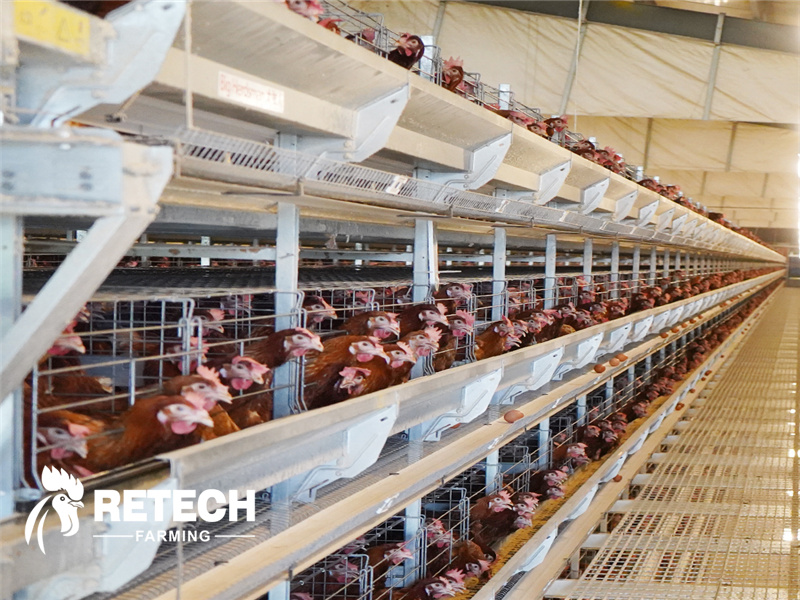
chicken cage
2.Chicken has strong metabolism, rapid growth and high reproductive rate
The body temperature of an adult chicken is 41-42°C, which is about 5°C higher than that of mammals. It breathes 36 times per minute, has a heartbeat of about 300 times, and has a very vigorous metabolism. In order to ensure the metabolic needs, rich nutrients and energy substances must be given. The feed formula for chickens should be as comprehensive and balanced as possible. The weight of the chicks when they are just out of the shell is about 35~40g. After 6-7 weeks of feeding, the broiler can reach more than 2000g, and the feed-to-weight ratio is 2:1 or lower. A laying hen can lay 15-17kg (280-320 eggs) a year, which is about 10 times its body weight.
The vigorous metabolism also quickly produces a large amount of waste gas, waste gas and feces, and chickens also have higher requirements for environmental conditions such as ventilation.
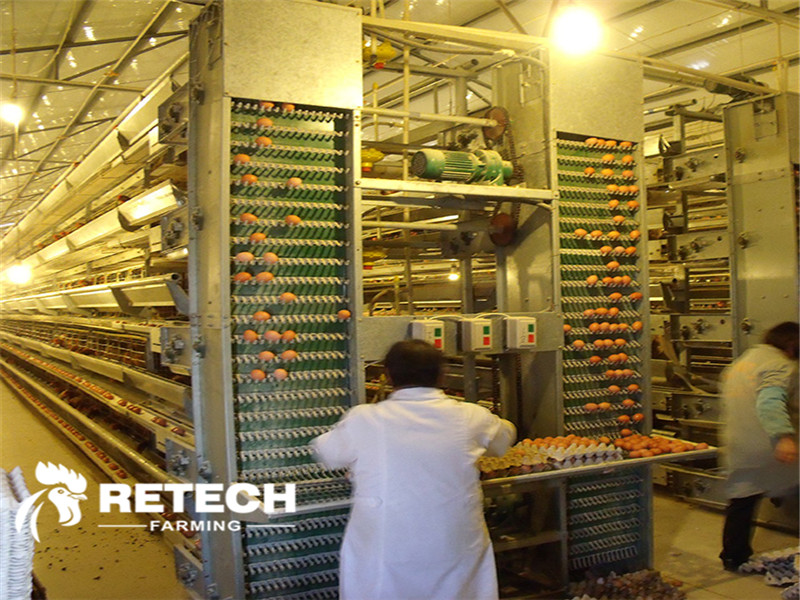
egg collection system
3.Afraid of moisture
Chickens like a warm, dry environment. If the humidity is high, some pathogenic bacteria and molds are easy to grow and multiply, and the fermentation of chicken manure produces harmful gases, which can easily cause various diseases. The humidity of the 4-week-old chicken house is best controlled at 60-70, and the highest should not exceed 75.Raising chickens requires attention to changes in temperature and humidity in the chicken coop and timely adjustments.
4.sensitive, timid
Chickens have sharp sensory organs and are full of nervousness, especially some small breeds of laying hens. The sudden appearance of any new sound, action, object, etc. will cause a series of stress reactions in the chicken, such as screaming, leaping, running away, and frying the group. Laying hens stop production or are prone to lay soft-shell eggs, eggs without yolks, eggs with double yolks and other abnormal eggs.
5.gregarious, aggressive, love to imitate
Chickens are very gregarious, and generally do not act alone. Raising chickens that have just hatched for a few days will find a group, and once they leave the group, they will keep screaming. Both male and female hens have a strong ability to recognize nests, can quickly adapt to new environments, and automatically return to their original habitats. At the same time, new roosters are not allowed to enter. Once a new rooster arrives, they will continue to fight until one party loses, especially the rooster. Chickens like to imitate. If the nutritional level and feeding management technology cannot keep up with intensive breeding, the habit of pecking anus and feathers will often occur due to the high density of chicken flocks. All chickens will follow suit. If measures are not taken in time, there will be Risk of mass pecking to death.

battery chicken cage
6.Weak body resistance, poor disease resistance
The poor disease resistance of chickens is manifested in many aspects: the lungs of chickens are small, connected with many air sacs, and there are air sacs in various parts of the body including bone cavities, which are connected to each other, so that some airborne pathogens are easily infected. Along the respiratory tract, it enters the lungs, air sacs, body cavities, muscles, and bones. Therefore, various infectious diseases of chickens are mostly transmitted through the respiratory tract, with rapid onset, high mortality, many sequelae, and great losses.
Under the same conditions, compared with ducks, geese, etc., chickens have poor resistance and low survival rate.
7.Suitable for intensive large-scale breeding
The artificial hatching technology of chickens enables more than 10,000 chicks to be hatched at one time, providing a source of chicks for intensive chicken farming; the modern light steel structure chicken house has fast assembly, fast extension, fast shaping, and airtightness It provides a reliable and high-quality environment for intensive chicken farming; modern cage and flat farming equipment provides equipment support for intensive chicken farming.
High-density breeding improves the utilization rate of chicken houses. Single-layer or multi-layer light steel structure chicken houses are easily constructed. A complete chicken house can raise tens of thousands of chickens, achieving the new goal of high-yield and efficient breeding.
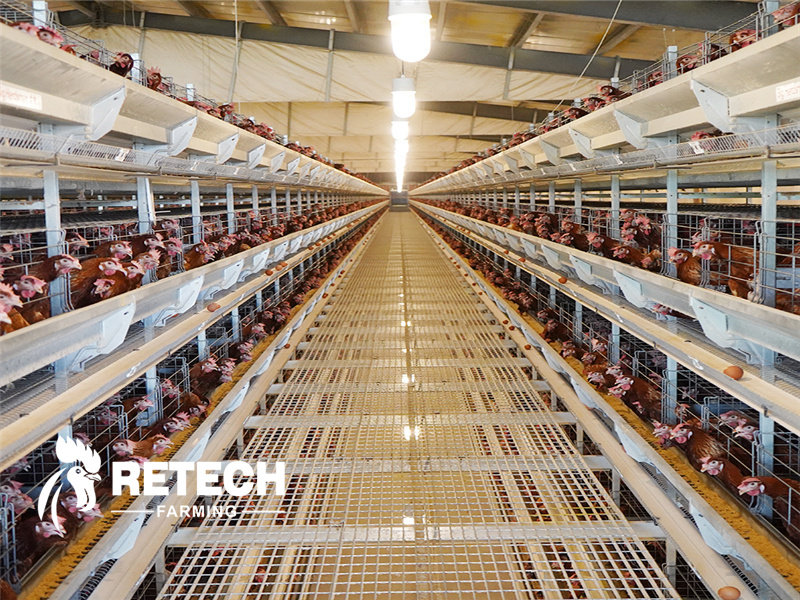
modern chicken farms
So if you looking for a Poultry raising chickens business opportunity, and if you want to start your own Poultry Chicken Business, pls feel free to give us a call, would be more than happy to help you!
Website: www.retechfarming.com www.farmingport.com
Facebook: @retechfarmingchickencage 100k Followers
Whatsapp: +8617685886881
Email: director@retechfarming.com
